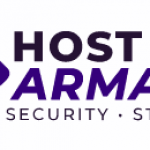The Big Decision
Imagine you’re about to build your first website. Maybe it’s for your small business, your blog about cooking, or an online store to sell handmade crafts. You’re excited, but then you hit your first big question: “Where do I put my website?”
- The Big Decision
- What is Web Hosting? (Explained Super Simply)
- 💖 You Might Also Like
- Meet the Competitors: HostGator and GoDaddy
- HostGator: The Friendly Alligator
- GoDaddy: The Big Name
- Round 1: Pricing (Who’s Cheaper?)
- HostGator Pricing
- GoDaddy Pricing
- The Winner?
- Round 2: Ease of Use (Which One is Easier?)
- HostGator’s Interface
- GoDaddy’s Interface
- The Winner?
- Round 3: Performance and Speed (Which One is Faster?)
- HostGator Performance
- GoDaddy Performance
- The Winner?
- Round 4: Customer Support (Who Helps You Better?)
- HostGator Support
- GoDaddy Support
- The Winner?
- Round 5: Features (What Do You Get?)
- HostGator Features
- GoDaddy Features
- The Winner?
- Round 6: WordPress Hosting (For WordPress Users)
- HostGator for WordPress
- GoDaddy for WordPress
- The Winner?
- Round 7: Email Hosting (For Professional Emails)
- HostGator Email
- GoDaddy Email
- The Winner?
- Round 8: Security (Keeping Your Website Safe)
- HostGator Security
- GoDaddy Security
- The Winner?
- Round 9: Scalability (Growing Your Website)
- HostGator Scalability
- GoDaddy Scalability
- The Winner?
- Round 10: Extra Services (What Else Do They Offer?)
- HostGator Extras
- GoDaddy Extras
- The Winner?
- The Pros and Cons Summary
- HostGator Pros (Good Things):
- HostGator Cons (Not-So-Good Things):
- GoDaddy Pros (Good Things):
- GoDaddy Cons (Not-So-Good Things):
- Real User Experiences
- What HostGator Users Say:
- What GoDaddy Users Say:
- Who Should Choose HostGator?
- Who Should Choose GoDaddy?
- The Final Verdict: Who Wins Overall?
- My Personal Recommendation
- Important Tips Before You Choose
- Tip 1: Read the Fine Print
- Tip 2: Don’t Buy Everything at Once
- Tip 3: Sign Up for Longer Terms
- Tip 4: Use Coupons
- Tip 5: Start with Basic Hosting
- Frequently Asked Questions
- Conclusion: Making Your Choice
That’s where web hosting companies come in. They’re like landlords for websites. Just like you need a place to live, your website needs a home on the internet. And two of the biggest names you’ll hear about are HostGator and GoDaddy.
But which one should you choose? Don’t worry! In this guide, we’ll compare these two popular hosting companies in the simplest way possible. By the end, you’ll know exactly which one fits your needs best.
What is Web Hosting? (Explained Super Simply)
Before we dive into comparing HostGator and GoDaddy, let’s understand what web hosting actually means.
Think of web hosting like renting a shop in a mall. When you want to start a business, you need a physical space where customers can visit, right? Similarly, when you create a website, you need space on the internet where people can visit your site.
Web hosting companies provide that space. They have powerful computers called “servers” that stay on 24/7, making sure your website is always available for anyone who wants to visit it.
💖 You Might Also Like
Meet the Competitors: HostGator and GoDaddy
HostGator: The Friendly Alligator
HostGator was born in 2002 in a college dorm room in Florida. Yes, really! A college student named Brent Oxley started it, and now it hosts millions of websites. The company uses a cute alligator as its mascot, which makes it easy to remember.
HostGator is known for being beginner-friendly and offering good customer support. Many people choose HostGator for their first website because it’s easy to understand and use.
GoDaddy: The Big Name
GoDaddy started even earlier, in 1997. It’s one of the oldest and biggest names in the web hosting world. You’ve probably seen their commercials on TV or online.
GoDaddy is famous for domain names (those website addresses like www.yourname.com). But they also offer web hosting and many other services. They’re like the Walmart of web hosting – they have everything!
Round 1: Pricing (Who’s Cheaper?)
Let’s talk about money first because, let’s be honest, that’s what most people care about!
HostGator Pricing
HostGator offers three main hosting plans:
Hatchling Plan: This is their starter plan, perfect for one website. It usually costs around $2.75 to $3.95 per month when you sign up for a longer period.
Baby Plan: This one lets you host unlimited websites. It costs about $3.50 to $5.95 per month.
Business Plan: This includes extra features for growing businesses, costing around $5.25 to $8.95 per month.
Here’s a cool thing: HostGator often runs sales where you can get hosting for as low as $2.75 per month! But remember, these low prices are usually for your first term. When you renew, prices go up.
GoDaddy Pricing
GoDaddy also has different plans:
Economy Plan: Perfect for one website, starting at around $5.99 to $9.99 per month.
Deluxe Plan: For unlimited websites, costing about $7.99 to $12.99 per month.
Ultimate Plan: With more power and features, around $12.99 to $16.99 per month.
GoDaddy’s regular prices are higher than HostGator’s, but they also have frequent sales and discounts, especially for new customers.
The Winner?
HostGator wins on pricing! They’re generally cheaper, especially for long-term plans. If you’re on a tight budget, HostGator gives you more bang for your buck.
Round 2: Ease of Use (Which One is Easier?)
If you’re new to websites, you don’t want something complicated, right? Let’s see which one is easier to use.
HostGator’s Interface
HostGator uses something called cPanel. Think of cPanel like the control panel in your car – it has all the buttons and controls you need in one place.
cPanel looks a bit old-fashioned (like your dad’s favorite shirt), but it’s actually really good! Everything is organized with icons, making it easy to find what you need. Want to install WordPress? Just click an icon. Need to set up an email? Another icon!
For beginners, HostGator also offers lots of video tutorials and guides that explain everything step-by-step.
GoDaddy’s Interface
GoDaddy created their own control panel. It looks more modern and sleek (like a new smartphone), but some people find it confusing because it’s different from what most hosting companies use.
The dashboard tries to be simple, but sometimes it feels like they’re trying to sell you extra things rather than helping you manage your website. It’s like walking into a store where employees keep offering you stuff you don’t need.
However, GoDaddy has improved a lot over the years, and their interface is getting better.
The Winner?
HostGator takes this round! The cPanel interface is standard, well-organized, and easier for beginners. Plus, since most hosting companies use cPanel, learning it now will help you if you ever switch hosts.
Round 3: Performance and Speed (Which One is Faster?)
Website speed is super important! If your website loads slowly, visitors will leave. It’s like waiting in a long line at a restaurant – if it takes too long, you’ll just go somewhere else.
HostGator Performance
HostGator offers decent speed. Your website will usually load in about 1 to 2 seconds, which is pretty good! They use solid-state drives (SSDs) in their better plans, which are like super-fast hard drives.
Their uptime (the time your website is actually working and not down) is around 99.9%. That means your site might be down for just a few minutes per month, which is acceptable.
HostGator has data centers (those big buildings with servers) in different locations, which helps your website load faster for visitors around the world.
GoDaddy Performance
GoDaddy’s speed is similar to HostGator’s. Websites usually load in about 1 to 2 seconds as well. They also use SSDs and have multiple data centers.
However, some users report that GoDaddy can be a bit slower during busy times, like when lots of people are trying to access their control panel at once.
GoDaddy’s uptime is also around 99.9%, which is the industry standard.
The Winner?
It’s a tie! Both companies offer similar performance and speed. For most small websites and blogs, you won’t notice much difference between the two.
Round 4: Customer Support (Who Helps You Better?)
When something goes wrong with your website (and trust me, sometimes things do), you want help fast!
HostGator Support
HostGator offers 24/7 support through:
- Live Chat: You can chat with someone instantly
- Phone Support: Call them anytime, day or night
- Email/Tickets: Send them a message and they’ll respond
People generally say good things about HostGator’s support team. They’re friendly, patient with beginners, and usually solve problems quickly. The average wait time is pretty short, especially for chat.
HostGator also has a huge knowledge base (like a library of help articles) where you can find answers to common questions.
GoDaddy Support
GoDaddy also offers 24/7 support with:
- Live Chat: Available all the time
- Phone Support: Call centers around the world
- Social Media: They respond on Twitter and Facebook
However, here’s where GoDaddy struggles a bit. Many users complain that support can be slow or unhelpful. Sometimes you get transferred multiple times, and the support person might try to sell you extra services instead of just fixing your problem.
That said, GoDaddy has been working hard to improve their support, and it’s getting better.
The Winner?
HostGator wins this round! Their support is generally faster, friendlier, and more helpful. For beginners who might need extra hand-holding, HostGator is the better choice.
Round 5: Features (What Do You Get?)
Both companies offer lots of features, but let’s break down what really matters.
HostGator Features
Free Domain: You get a free domain name for one year (that’s worth about $15!)
Unlimited Bandwidth: Your website can have as many visitors as you want (on most plans)
Free SSL Certificate: This makes your website secure (you’ll see the little padlock in the browser)
One-Click WordPress Install: Set up a WordPress website with just one click
Free Website Builder: If you don’t want to use WordPress, they have a drag-and-drop builder
Unlimited Email Accounts: Create as many email addresses as you need
45-Day Money-Back Guarantee: Try it risk-free for 45 days
GoDaddy Features
Free Domain: Also offers a free domain for one year
Unlimited Bandwidth: Available on higher-tier plans
Free SSL Certificate: Included with all plans
One-Click WordPress Install: Easy WordPress setup
Website Builder: They have their own website builder
Email Included: Limited email accounts (you might need to pay for more)
30-Day Money-Back Guarantee: Try it for 30 days risk-free
The Winner?
HostGator edges ahead! They offer a longer money-back guarantee (45 days vs 30 days), and their plans generally include more features without paying extra.
Round 6: WordPress Hosting (For WordPress Users)
WordPress is the most popular way to build websites. Let’s see who handles it better.
HostGator for WordPress
HostGator loves WordPress! They offer special WordPress hosting plans that are optimized (made specially) for WordPress sites. These plans include:
- Pre-installed WordPress
- Automatic updates
- Better security
- Faster loading times
- Free backups
Their regular shared hosting also works great with WordPress, and the one-click install makes it super easy to get started.
GoDaddy for WordPress
GoDaddy also offers WordPress hosting plans. They’re called “Managed WordPress” plans and include:
- Pre-installed WordPress
- Automatic updates
- Security monitoring
- Daily backups
- CDN (content delivery network) for faster loading
However, GoDaddy’s WordPress hosting is more expensive than HostGator’s, and some users find it more restrictive.
The Winner?
HostGator wins for WordPress! Their WordPress hosting is more affordable and just as good. Plus, their support team knows WordPress really well and can help you with WordPress-specific questions.
Round 7: Email Hosting (For Professional Emails)
Having a professional email (like yourname@yourbusiness.com) looks much better than using Gmail or Yahoo for your business.
HostGator Email
HostGator includes unlimited email accounts with most plans. That means you can create:
- info@yourwebsite.com
- sales@yourwebsite.com
- support@yourwebsite.com
- As many as you want!
You can access your email through webmail (like Gmail’s interface) or set it up on your phone and computer. Easy peasy!
GoDaddy Email
GoDaddy’s basic hosting plans include limited email accounts. If you want more features or unlimited accounts, you’ll need to buy their “Professional Email” plan separately, which costs extra money each month.
This can get expensive quickly, especially if you need email for multiple people in your business.
The Winner?
HostGator wins easily! Getting unlimited email accounts included is a huge advantage. With GoDaddy, you’ll likely end up paying more for decent email service.
Round 8: Security (Keeping Your Website Safe)
Website security is like locking your front door – you need it to keep the bad guys out!
HostGator Security
HostGator provides:
- Free SSL Certificates: Encrypts data (makes it unreadable to hackers)
- Automatic Malware Scans: Checks for viruses regularly
- DDoS Protection: Protects against attacks that try to crash your site
- Firewall Protection: Like a security guard for your website
- Optional CodeGuard: Automatic backups (costs extra)
HostGator’s security is solid for basic protection, but for advanced security features, you might need to pay extra.
GoDaddy Security
GoDaddy offers:
- Free SSL Certificates: Included with all plans
- Security Monitoring: Watches for threats
- DDoS Protection: Standard protection included
- Malware Scanning: Checks for bad stuff
- Optional Backups: Available for extra cost
GoDaddy heavily promotes their paid security products, which can feel pushy. Their basic security is good, but they really want you to buy their premium security packages.
The Winner?
Another tie! Both companies offer similar basic security features. For most small websites, what they provide is enough. If you need advanced security, both will require you to pay extra.
Round 9: Scalability (Growing Your Website)
What happens when your website gets popular and needs more power?
HostGator Scalability
HostGator makes it easy to upgrade. You can start with basic shared hosting and then move to:
- VPS Hosting: More powerful, like having your own apartment instead of sharing a house
- Dedicated Hosting: Your own entire server, like owning a house
- Cloud Hosting: Super flexible and powerful
The upgrade process is simple, and their support team can help you choose the right plan as you grow.
GoDaddy Scalability
GoDaddy also offers different levels of hosting as you grow. You can upgrade from shared hosting to VPS, dedicated, or cloud hosting.
However, the upgrade process can be more complicated with GoDaddy, and some users report that migrations (moving your site to a bigger plan) don’t always go smoothly.
The Winner?
HostGator takes this one! Their upgrade path is clearer and smoother. As your website grows, it’s easier to scale up without headaches.
Round 10: Extra Services (What Else Do They Offer?)
Sometimes you need more than just hosting.
HostGator Extras
- Website Design Services: They can build your website for you
- SEO Services: Help people find your website on Google
- Website Transfer: They’ll move your site from another host for free
- Marketing Tools: Email marketing and more
GoDaddy Extras
- Domain Registration: They’re famous for this (over 80 million domains!)
- Website Builder: User-friendly drag-and-drop builder
- Email Marketing: Built-in email marketing tools
- Online Booking: For service-based businesses
- SEO Services: Help with Google rankings
The Winner?
GoDaddy wins here! They offer more additional services, especially for domain management. If you want everything in one place, GoDaddy has it all.
The Pros and Cons Summary
HostGator Pros (Good Things):
✅ More affordable pricing
✅ Better customer support
✅ Easier to use interface (cPanel)
✅ Unlimited email accounts included
✅ Longer money-back guarantee (45 days)
✅ Great for WordPress
✅ Excellent for beginners
HostGator Cons (Not-So-Good Things):
❌ Renewal prices can be high
❌ Fewer additional services
❌ Upselling during checkout (they try to sell you extras)
GoDaddy Pros (Good Things):
✅ Huge company with lots of resources
✅ Excellent domain registration service
✅ More additional services and tools
✅ Modern interface
✅ Name recognition and trust
GoDaddy Cons (Not-So-Good Things):
❌ More expensive overall
❌ Customer support can be hit-or-miss
❌ Limited email on basic plans
❌ Aggressive upselling
❌ Shorter money-back guarantee (30 days)
Real User Experiences
Let’s hear from real people who’ve used these services!
What HostGator Users Say:
Sarah, Small Business Owner: “I switched to HostGator three years ago and never looked back. The support team helped me move my website for free, and they’re always there when I need help. It’s affordable and reliable.”
Mike, Blogger: “As someone who’s not tech-savvy, HostGator made everything easy. The video tutorials helped me set up my blog in one afternoon!”
Jessica, Online Store Owner: “My website loads fast, and I’ve had maybe one hour of downtime in two years. For the price, it’s unbeatable.”
What GoDaddy Users Say:
Tom, Entrepreneur: “I have 15 domain names with GoDaddy, and managing them is super easy. Their domain management tools are the best.”
Linda, Freelancer: “I use GoDaddy for my portfolio site. It’s reliable, but I wish their support was better. Sometimes I wait a long time to get help.”
David, Agency Owner: “GoDaddy has all the tools I need in one place, but it can get pricey when you add everything up.”
Who Should Choose HostGator?
HostGator is perfect for you if:
🎯 You’re a beginner starting your first website
🎯 You’re on a tight budget
🎯 You want unlimited email accounts
🎯 You need good customer support
🎯 You’re building a WordPress website
🎯 You want a simple, easy-to-use interface
🎯 You’re a blogger or small business owner
🎯 You want more bang for your buck
Who Should Choose GoDaddy?
GoDaddy is perfect for you if:
🎯 You need to register multiple domain names
🎯 You want all services in one place
🎯 You’re already using GoDaddy for domains
🎯 You prefer a more modern interface
🎯 You need extra business tools like online booking
🎯 Brand recognition is important to you
🎯 You have a bigger budget
The Final Verdict: Who Wins Overall?
After comparing everything, here’s the truth: HostGator is the better choice for most people, especially beginners and those on a budget.
Here’s why:
- Better Value: You get more for your money
- Superior Support: Help when you need it most
- Easier to Use: Less confusing for beginners
- More Included: Unlimited emails and better features in basic plans
- WordPress-Friendly: Perfect for the most popular website platform
However, GoDaddy is excellent if you need domain management and want everything under one roof. If you’re already a GoDaddy customer for domains, keeping everything together might make sense.
My Personal Recommendation
If I were starting a website today, I’d choose HostGator. Here’s what I’d do:
- Sign up for the Baby Plan (so I can host multiple websites later)
- Lock in the promotional price for 3 years to save money
- Use their one-click WordPress install to build my site
- Take advantage of their 45-day guarantee to try it risk-free
But if you really need professional domain management tools and you’re already comfortable with GoDaddy, stick with what you know!
Important Tips Before You Choose
Tip 1: Read the Fine Print
Both companies show low promotional prices, but these increase when you renew. Make sure you understand the renewal costs before committing.
Tip 2: Don’t Buy Everything at Once
During checkout, both companies will try to sell you extras like premium security, backups, and more. You probably don’t need most of these when starting out. Stick to the basics and add more later if needed.
Tip 3: Sign Up for Longer Terms
Both companies offer the best prices when you prepay for 2-3 years. If you’re sure about your website project, this can save you a lot of money.
Tip 4: Use Coupons
Always search for coupon codes before checking out! Both companies frequently offer discounts, sometimes up to 60% off. Websites like RetailMeNot or a simple Google search can help you find current codes.
Tip 5: Start with Basic Hosting
Don’t overspend on VPS or dedicated hosting when you’re just starting. Basic shared hosting is perfect for new websites. You can always upgrade later when you need more power.
Frequently Asked Questions
Q: Can I switch from GoDaddy to HostGator (or vice versa) later? A: Yes! You can always switch hosting companies. HostGator even offers free website migration, meaning they’ll move your site for you.
Q: Do I need to know coding to use these services? A: Nope! Both companies make it easy to build websites without any coding knowledge. They offer website builders and one-click WordPress installation.
Q: What if I’m not happy after signing up? A: Both offer money-back guarantees. HostGator gives you 45 days and GoDaddy gives you 30 days to get a full refund if you’re not satisfied.
Q: Can I host multiple websites? A: Yes! HostGator’s Baby Plan and above allow unlimited websites. GoDaddy’s Deluxe Plan and above also allow multiple sites.
Q: Do I get a free domain name? A: Both companies include a free domain name for one year when you sign up for hosting.
Q: Is my website data backed up? A: Both companies offer backup services, but automatic backups usually cost extra. It’s worth investing in for important websites.
Conclusion: Making Your Choice
Choosing between HostGator and GoDaddy doesn’t have to be complicated. Think about what matters most to you:
Choose HostGator if you want:
- Better value for money
- Excellent customer support
- Easy-to-use interface
- Great features included in basic plans
Choose GoDaddy if you want:
- Superior domain management
- All services in one place
- Modern interface
- Strong brand recognition
Remember, both are reliable companies that host millions of websites. You can’t go terribly wrong with either choice. The most important thing is to actually start building your website rather than overthinking the hosting decision!
Your website is waiting to be born. Whether you choose the friendly alligator (HostGator) or the big-name giant (GoDaddy), take that first step today. The internet needs what you’re about to create!
Good luck with your website journey! 🚀
Final Thought: The best hosting company is the one that helps you achieve your goals without breaking your budget or causing unnecessary stress. For most people reading this guide, that’s HostGator. But take time to think about your specific needs, use the money-back guarantee period to test your choice, and don’t be afraid to switch if something isn’t working for you. Your website, your rules!








